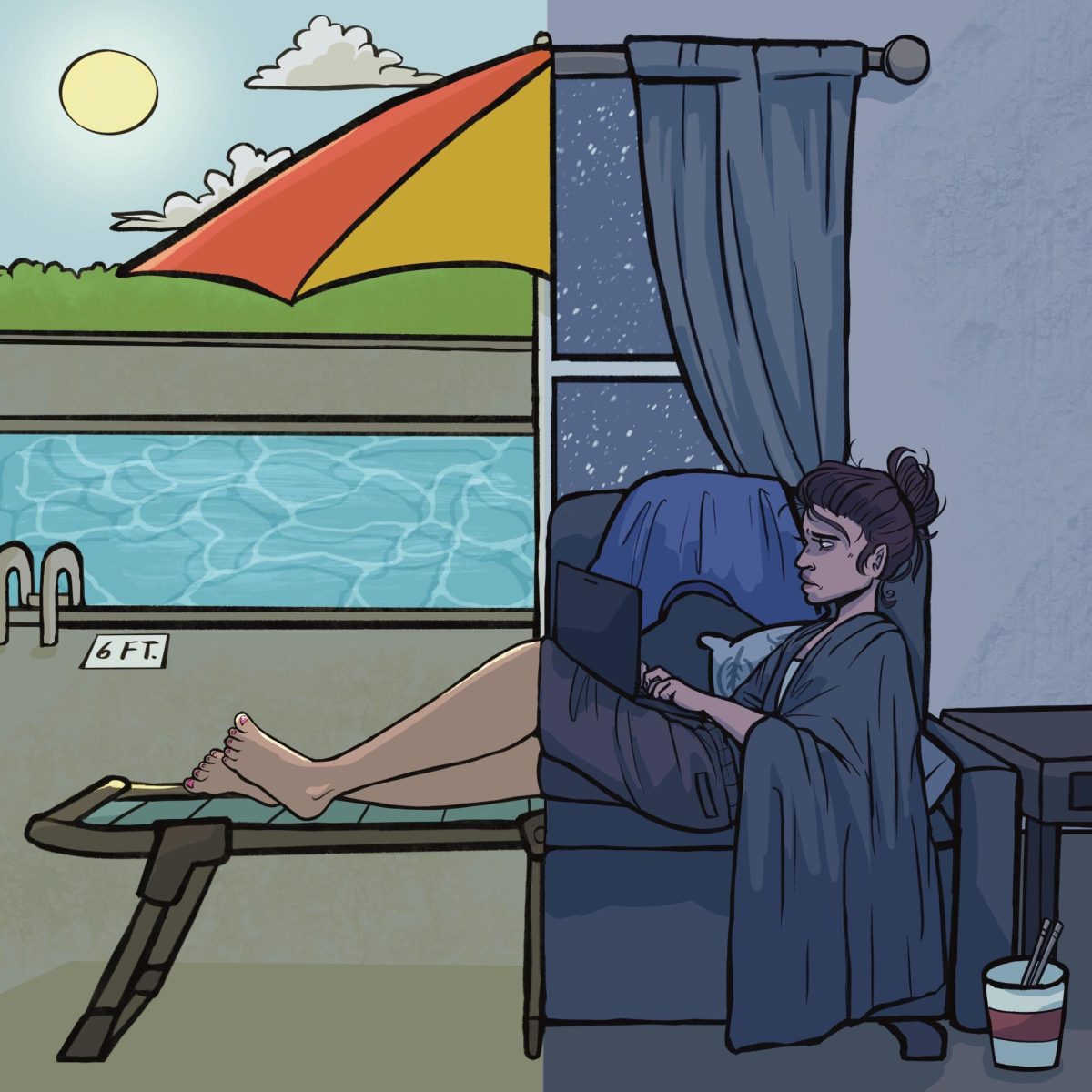As the University of Arizona gears down for the winter season, daily high temperatures in Tucson will drop an average of 20 degrees Fahrenheit from their October levels. This imposes a new environment that college students will have to adjust to.
Physical adjustments will most certainly be felt immediately, but what isn’t as easy to adjust is mental activity. Things like mood, mental status and daily functions become subject to modification as students navigate the shift in how to respond to the transformed natural environment, demanding a nuanced and deliberate adjustment in our cognitive and emotional processes.
Dr. Jordan Karp, professor and chair for the Department of Psychiatry at the University of Arizona, and clinical service chief for behavioral medicine at Banner Health, says that seasonal affective disorder is “a pattern of significant changes in mood that correspond with seasonal changes.”
The symptoms of seasonal affective disorder are expansive and complex; however, there are a few major manifestations that students can look out for when either assessing themselves or looking out for a friend, peer or classmate.
Karp claims that “people with seasonal affective disorder often describe feeling more isolated, slowed down, increased social withdrawal and oblique thoughts.”
As students acclimate to the dropping temperatures, reduced exposure to daylight and the elongation of nighttime hours on campus, it becomes crucial for them to adhere to a consistent routine that aligns with their comfort levels.
This routine may encompass timely sleep, regular meal consumption or engagement in outdoor activities. The maintenance of such a structured schedule serves as a preventive measure against the onset of symptoms associated with seasonal affective disorder, which, if left unaddressed, could potentially escalate into more pronounced and challenging psychiatric manifestations, according to the National Health Service.
Being exposed to sunlight plays a critical role in combating the effects of seasonal affective disorder. Specifically in the morning, receiving some sort of stimulation from sunlight may help prevent or mitigate the effects of seasonal depressive episodes. It is advisable to avoid prolonged periods in bed, even before the full sunrise, and to make sure to establish a routine to make mornings productive.
“Further ways to improve mitigating the effects of seasonal affective disorder is by using light box therapy, which mimics the effects of sunlight while providing 10,000 lux light,” Karp said.
Students feel the impact of SAD both academically and personally.
”When winter comes, I feel less motivated to study at the library and go to class,” Nik Mathur, a third year undergraduate UA student, said.
This is one of the many experiences that students may feel when dealing with the side effects of seasonal affective disorder. Other experiences that have been felt among college students is a lack of interest to go to class, workout and maintain a healthy work/life balance.
Joe Zyadeh, a fourth year undergraduate student, observed that his mood and social life fluctuate throughout the semester; however, it isn’t based on seasonal changes, but instead happens because of the increased workload that comes with the semester coming to a close.
“The cold makes me more active, since I enjoy wearing layers of clothing, indulging in festive activities and can enjoy winter-related activities,” Zyadeh said.
Adaptations to new environmental settings become an integral aspect for college students to embrace, and experts say that the effects of seasonal depression should be closely monitored in order to maintain a healthy work/life balance.
Karp monitors and facilitates clinical trials which may be available to students who think they might be suffering from depression. To potentially receive clinical treatment, students can contact bamhresearch@arizona.edu or call 520-626-1527.
Additional resources for counseling and psych related services are available to students at the university’s Campus Health Center.
Follow the Daily Wildcat on Instagram and Twitter/X















